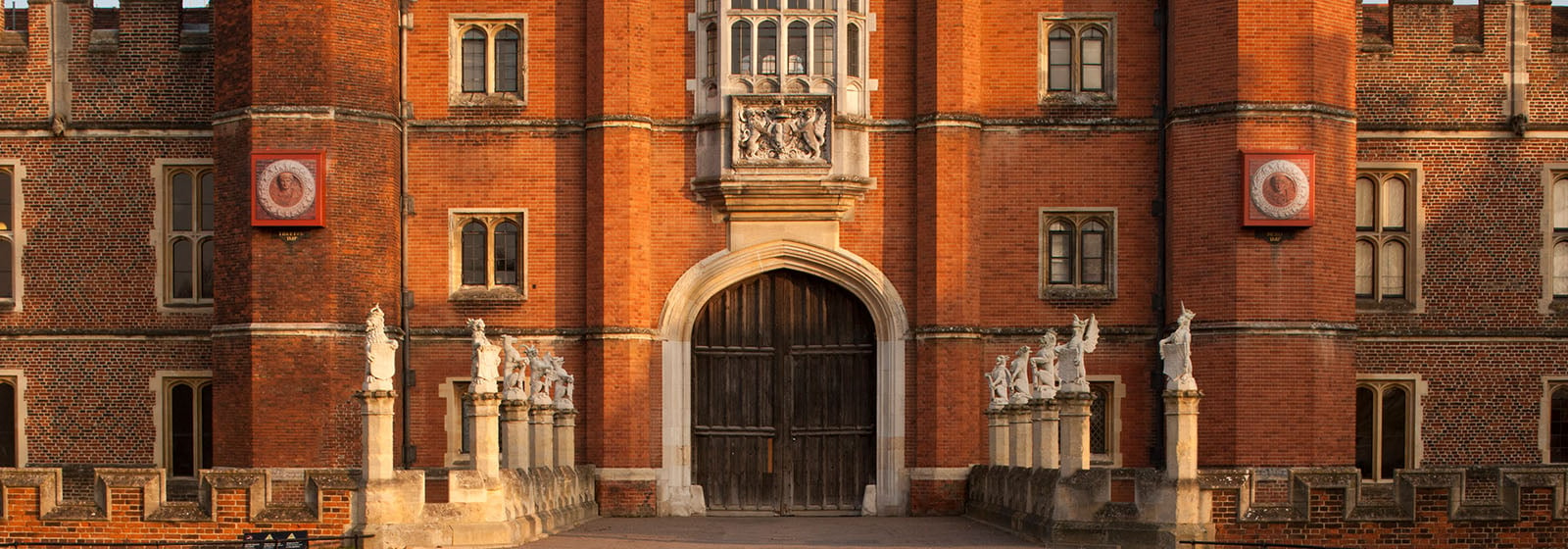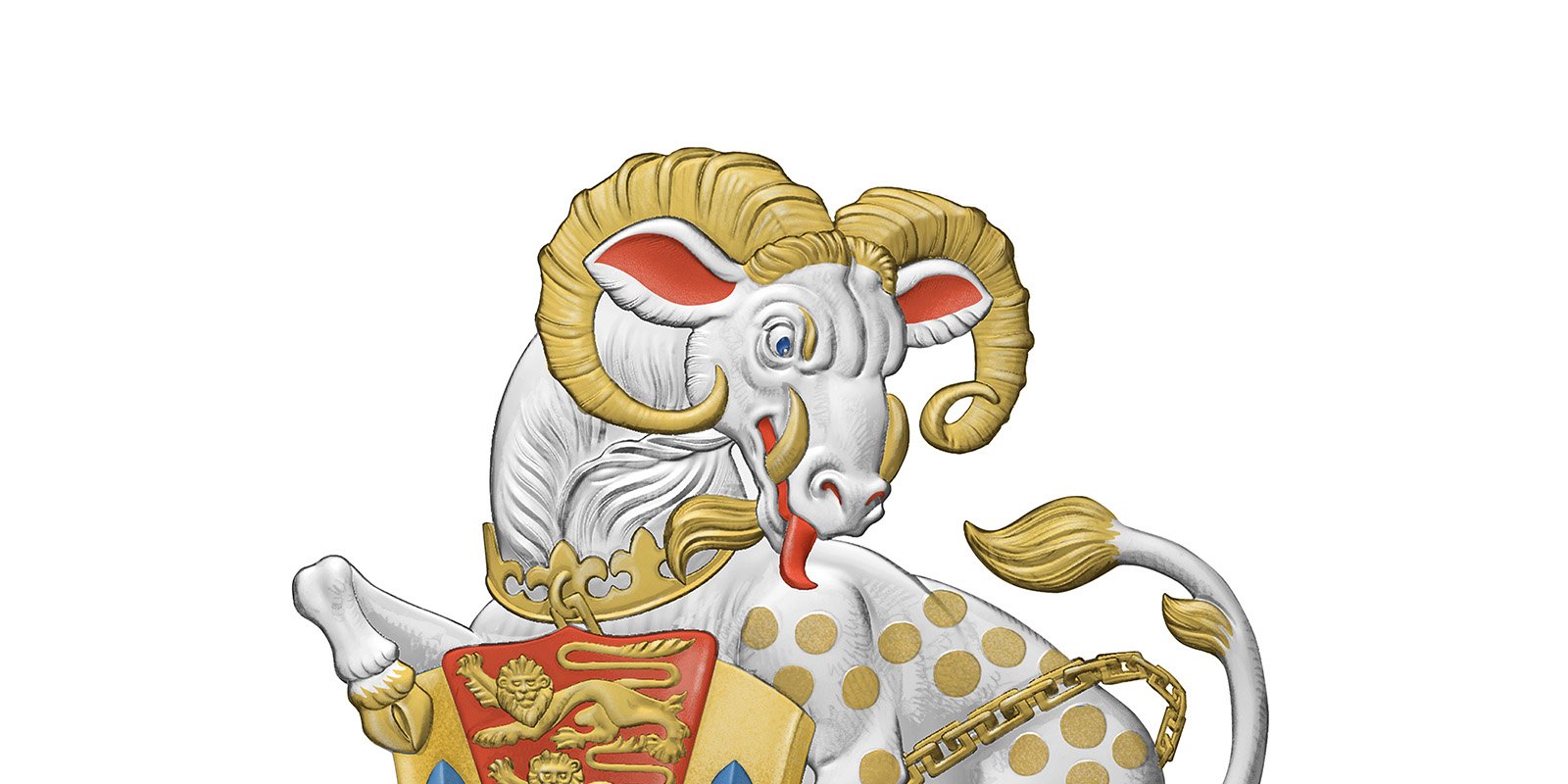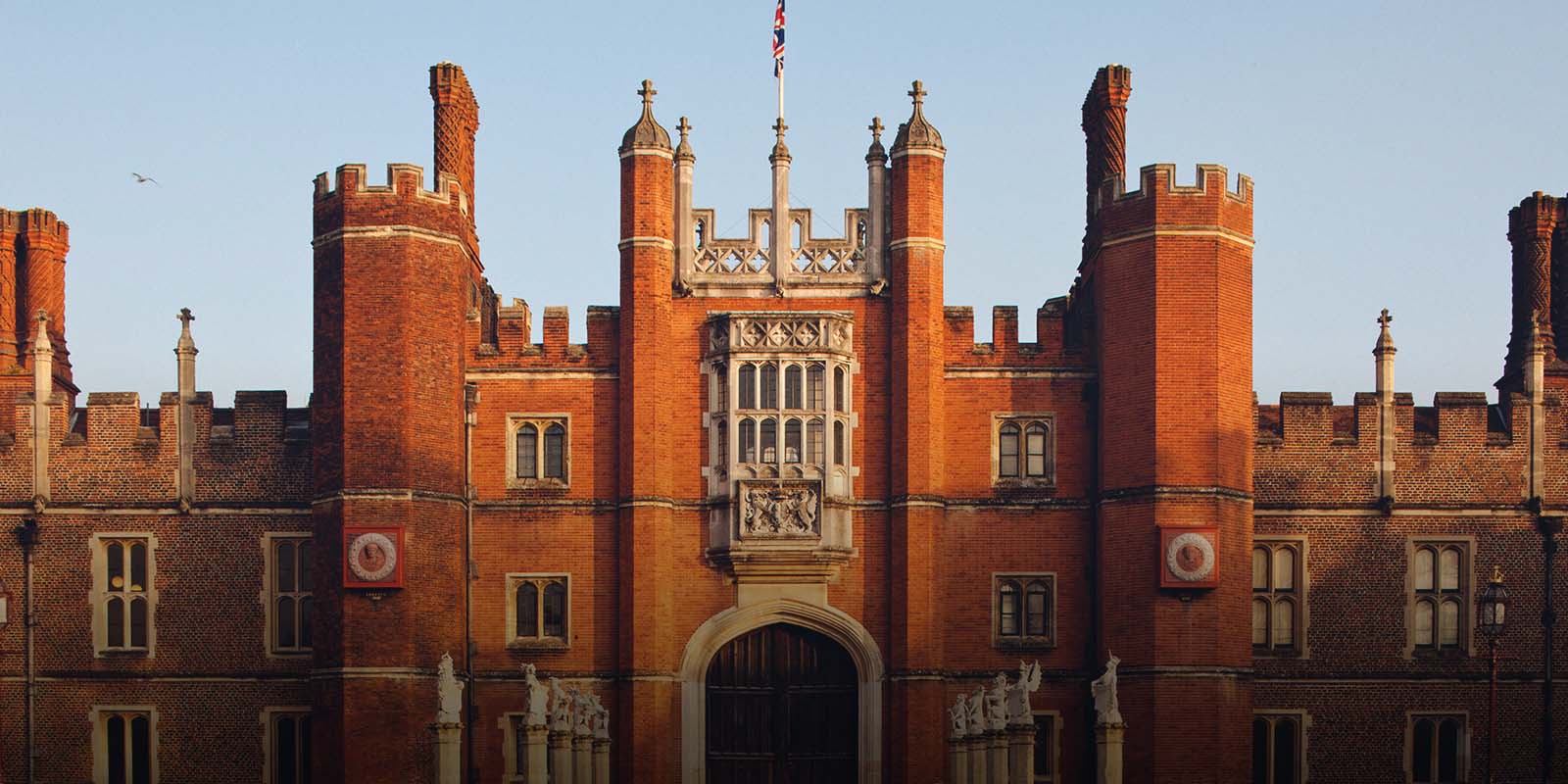It was at Hampton Court Palace, Henry VIII’s most famous and lavish residence, that the king chose the Yale of Beaufort as one of the original beasts lining the parapets of the magnificent Moat Gate bridge. The beasts served to reinforce the legitimacy of Henry VIII’s reign, commemorate his union with his third wife Jane Seymour, and highlight the strength of the Tudor dynasty.
Heraldic Symbols of Status
The yale first appeared as a symbol supporting the Arms of John, Duke of Bedford and Earl of Kendal (one of Henry VI’s sons). His earldom of Kendal and dukedom of Somerset were granted in 1443 to his cousin Sir John Beaufort (Henry VII’s grandfather), who took the ‘Eagle’ and Bedford ‘Yale’ as supporters.
On choosing the yale as a Royal Beast, Henry VIII sought to add credibility to his position on the throne by emphasising his family connection to the powerful Beaufort family. The yale is also linked to the title of Somerset, which Jane Seymour’s brother Edward held as Duke. It is thought that Henry VIII also chose the yale as a Queen’s Beast to honour her brother.

A Beast Tamed
Originating from European folklore, the yale is a weird yet wonderful beast with a white goat-like or antelope body spotted with gold, four legs, the gilded tusks of a boar, a lion’s tail and large horns that ‘swivel in any direction’ to counterattack from all quarters.
Portrayed as a strong defender, the Yale of Beaufort is one of The Queen’s Beasts. It has a crown collar, signifying royal ownership, and the chain around the tusked body demonstrates how the powerful creature has been tamed.
Sculpted in stone, this strange creature sits boldly on its Moat Bridge parapet supporting a shield bearing The Queen’s ‘Coat of Augmentation’, which Henry VIII granted to Jane Seymour. As she was not of royal blood with no direct link to Beaufort heraldry herself, the king used this heraldic symbol to elevate Jane Seymour’s status when she became his Queen Consort.
A SHARED LANGUAGE
Find out more


